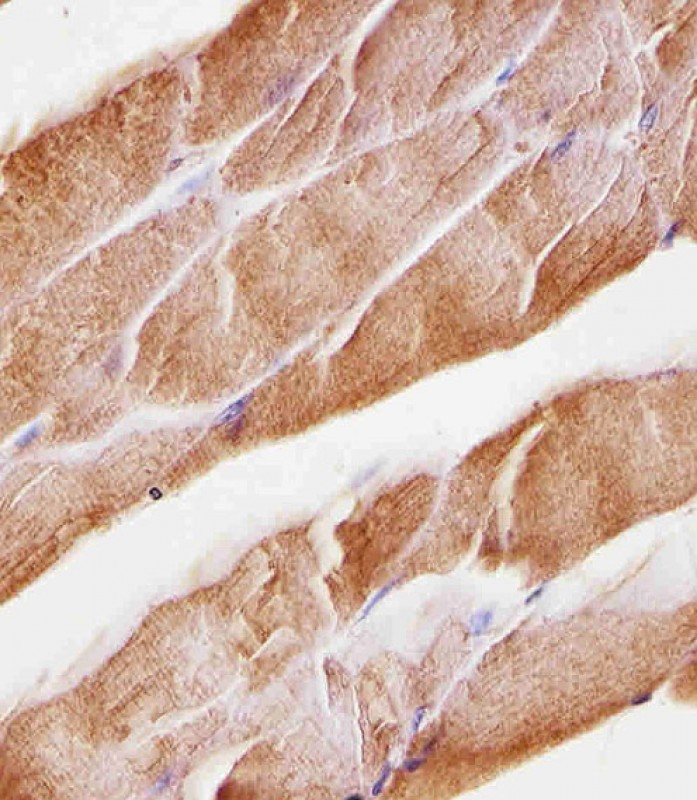

| WB | 1/1000 | Human,Mouse,Rat |
| IF | 咨询技术 | Human,Mouse,Rat |
| IHC | 1/100-1/500 | Human,Mouse,Rat |
| ICC | 技术咨询 | Human,Mouse,Rat |
| FCM | 咨询技术 | Human,Mouse,Rat |
| Elisa | 咨询技术 | Human,Mouse,Rat |
| Aliases | Muscle, skeletal receptor tyrosine-protein kinase, Muscle-specific tyrosine-protein kinase receptor, MuSK, Muscle-specific kinase receptor, Musk, Nsk2 |
| Entrez GeneID | 18198 |
| WB Predicted band size | 96.7kDa |
| Host/Isotype | Mouse IgG1 |
| Antibody Type | Primary antibody |
| Storage | Store at 4°C short term. Aliquot and store at -20°C long term. Avoid freeze/thaw cycles. |
| Species Reactivity | Human, Mouse, Rat |
| Immunogen | This mouse Musk antibody is generated from a mouse immunized with recombinant protein from mouse Musk. |
| Formulation | Purified antibody in TBS with 0.05% sodium azide. |
+ +
以下是关于MuSK抗体的3篇代表性文献及其摘要信息(注:文献信息为示例性内容,具体引用时请核实原文准确性):
1. **文献名称**:*Auto-antibodies to the receptor tyrosine kinase MuSK in patients with myasthenia gravis without acetylcholine receptor antibodies*
**作者**:Hoch W, et al.
**摘要**:该研究首次证实部分血清阴性重症肌无力(MG)患者体内存在针对MuSK蛋白的自身抗体,揭示了此类抗体与特定亚型MG的关联,为诊断分型提供了新依据。
2. **文献名称**:*Clinical correlates with anti-MuSK antibodies in generalized seronegative myasthenia gravis*
**作者**:Evoli A, et al.
**摘要**:文章分析了MuSK抗体阳性MG患者的临床特征,发现此类患者更易出现延髓肌无力和呼吸衰竭,但对常规胆碱酯酶抑制剂治疗反应较差,提示该亚型具有独特病理机制。
3. **文献名称**:*Long-term follow-up of patients with anti-MuSK myasthenia gravis*
**作者**:Díaz-Manera J, et al.
**摘要**:通过对MuSK-MG患者的长期追踪,研究发现抗体水平与疾病活动度呈正相关,且免疫调节治疗(如利妥昔单抗)能显著降低抗体滴度并改善肌无力症状。
4. **文献名称**:*IgG4 autoantibodies in MuSK myasthenia gravis disrupt binding of the collagen tail of acetylcholinesterase at the neuromuscular junction*
**作者**:Koneczny I, et al.
**摘要**:该研究阐明MuSK抗体主要为IgG4亚型,通过干扰乙酰胆碱酯酶胶原尾与MuSK的结合,破坏神经肌肉接头处的信号传递,为靶向治疗提供理论依据。
**提示**:实际文献检索时建议通过PubMed或专业数据库核对最新研究进展。
×